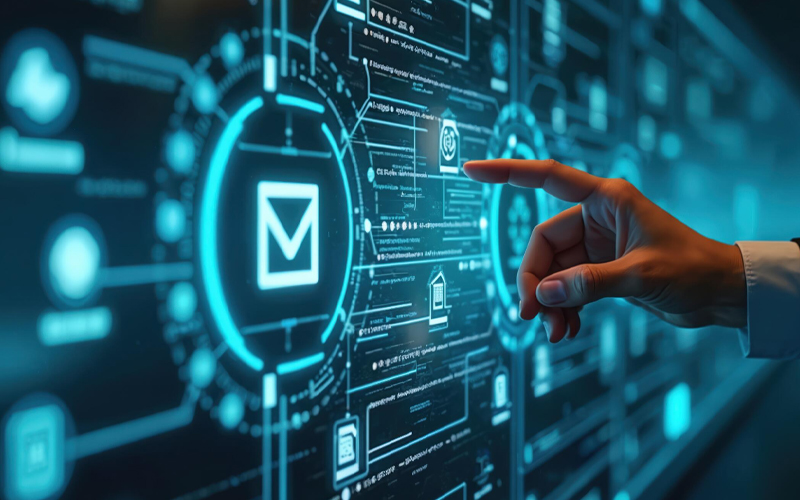There is a slow but sure shift in the corporate legal market segment. In a globally connected world, law firms have realised the power of outsourcing legal support and high-value legal services. The Legal Process Outsourcing (LPO) market is expected to grow from USD 13.8 billion in 2023 to USD 80.6 billion by 2032, with a Compound Annual Growth Rate (CAGR) of 21.6 per cent during the forecast period. There are several drivers for this growth. Law firms and corporate legal teams are constantly trying to improve their productivity and efficiency while reducing costs and improving services. There is an increased demand for legal services worldwide. With businesses setting up shop in different countries, there is a need to stay compliant with country-specific environmental regulations, employment laws, intellectual property regulations, healthcare norms, and several other aspects. Litigation, contract management, and regulatory changes require expertise. Legal teams are frequently overwhelmed by the volume of legal work and the tight deadlines. LPO provides several advantages to companies – cost savings, increased productivity and efficiency, access to expertise and scalability, to name a few.
LPO services typically include e-discovery, litigation support including drafting of pleas and briefs, patent support, drafting of contracts, compliance services and legal research. The dynamic marketplace and a digital world require companies to make critical business decisions in shorter time frames. This need, coupled with the availability of big data, and the explosive technology boom of Artificial Intelligence (AI) / Machine Learning (ML), and generative AI (Gen AI) is going to transform the LPO landscape in the years to come.
Trends in LPO
Leveraging intelligent automation
: Disruptive technologies such as AI, ML, Natural Language Processing (NLP) and generative AI (Gen AI) have enabled a plethora of applications in the legal industry. NLP enables understanding of human language, paving the way for automated reviewing of contracts and legal documents including case law. Such applications can also automatically classify documents, provide insights and aid in due diligence. Powered by AI, knowledge graphs can build relationships between legal entities, providing context for legal research such as identifying precedents and enhancing collaboration between legal professionals. Decision support systems based on AI/ML can aid decision making. Intelligent document systems can help populate documents automatically. Gen AI applications can generate contracts and other legal documents. Virtual assistants can chat with customers, providing support 24x7.Employing legal analytics
: Law firms and legal teams can leverage legal analytics to improve operational efficiency and make data-driven decisions. For instance, predictive analytics can be used to determine the likely outcome of a case, which would influence decisions on whether the firm should invest its resources and time on the case. Legal analytics can also be used to estimate the cost for a case, based on historical data, and make proposals to clients accordingly. Marketing analytics enables legal firms to analyse client data from social media, websites, and previous history, to develop a personalised marketing strategy for clients. Electronic discovery or eDiscovery, as it is known, uses data analytics to determine patterns, which are then used to an information docket of all items pertinent to the case. This can save humongous hours of time and money, besides being more accurate and efficient.Focusing on enhanced data security, privacy and business ethics
: With much of the world going digital, and a significant reliance on data from these systems, law firms are looking closely at both data security and privacy. LPO businesses adhere to stringent protocols and invest heavily in required IT hardware and software infrastructure to prevent cyber attacks. LPO providers are also deploying tools and applications to detect any possible anomalies. With client data and confidentiality being paramount, and applications and data residing on the cloud, LPOs have a renewed commitment to building client trust by adhering to professional standards, quality assurance and transparency.Offering specialised services
: LPO providers will focus on industry verticals, for instance, real estate, finance, healthcare, human resources, and so on. A deeper understanding of the complexities of these industries, and specific compliance and regulatory requirements would help clients. Risk assessments, support for compliance and regulatory guidance help companies mitigate legal risks. Clients will have access to specialised guidance and expertise with specialised LPO services.Expanding legal services
: Several non-core legal services such as legal marketing, transcription and administration are increasingly offered by LPO providers. Alongside, there is the growth of the Alternative Legal Services Providers (ALSP) market, which is moving up the value chain, by offering high-demand legal services. ALSPs provide data-driven, proactive and cost-effective solutions to the customer’s legal challenges. These providers offer affordable lawyer-lite services to several thousands of individuals and small businesses, by leveraging technology platforms and data insights, and are flipping legacy legal delivery on its head. By offering legal platforms that are built on cutting-edge technologies, tapping into the prowess of legal teams who regulate the outcomes, and making sure that they toe the line, ALSPs can create new revenue streams for LPO.As businesses re-imagine themselves, legal delivery services too need to adapt to ever-evolving market dynamics and add value. With a deep understanding of the legal landscape and leveraging technology platforms powered by AI, ML and Gen AI, LPOs can transform legal delivery services with improved efficiency, productivity and data-driven decisions.







